Seminars

Spring 2025 Seminar Series
Department of Anatomy, Cell Biology & Physiology
Brody School of Medicine
Friday, March 7, 2025 1:00-2:00 pm Warren LSB 202
Dr. Eric Levine
Associate Director, Neuroscience Graduate Program
Professor of Neuroscience
UConn Health®
Contributions of UBE3A and Non-Imprinted Genes to Angelman Syndrome & Dup15q Syndrome Pathophysiology
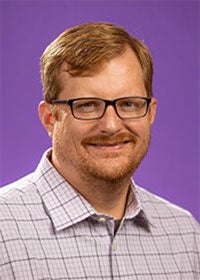
Spring 2024 Seminar Series
Department of Anatomy and Cell Biology
Brody School of Medicine
10 May 2024 1:00-2:00 pm
Brody 2E-92
Dr. Robert Hughes
Associate Professor Department of Chemistry
East Carolina University®
From light-activated cell biology to pharmaceutical synthesis: opportunities for innovation and collaboration
Dr. Robert Hughes, PhD is an Associate Professor in the Department of Chemistry at East Carolina University. Dr. Hughes earned his PhD in Bio-Organic Chemistry from UNC – Chapel Hill and conducted his postdoctoral training at UNC – Chapel Hill and Duke University. His group is broadly interested in research at the interface of chemistry and biology, with projects ranging from the creation of optogenetic biosensors and actuators to the design and optimization of immobilized enzyme formulations. In this talk, Dr. Hughes will present three ongoing projects from his laboratory with opportunities for collaboration and innovation here at ECU. The first project will introduce a light-activated profilin (‘OptoProfilin’) that forms stress granule-like clusters in response to light and applied stress. This construct presents a unique approach to the characterization of protein-protein interactions relevant to cytoskeletal dysregulation and human disease. The second project introduces efforts to produce immobilized enzymes with applications in protein sample preparation and in vitro studies of protein function. The third project will describe research from an organocatalysis-focused CURE (Course-Based Undergraduate Research Experience) which resulted in an enantioselective synthesis of warfarin, a commonly prescribed anti-coagulant that remains the focus of much clinical and basic research.

Spring 2024 Seminar Series
Department of Anatomy and Cell Biology
Brody School of Medicine
26 April 2024 1:00-2:00 pm
Brody 2E-100
Dr. Akshaya Meher
Assistant Professor Department of Microbiology and Immunology East Carolina University®
B-2 cell autoimmunity in type 2 diabetes
Dr. Akshaya Meher, PhD is an Assistant Professor in the Department of Microbiology and Immunology at East Carolina University. Dr. Meher earned his PhD from Jawaharlal Nehru University and conducted his postdoctoral training at the University of Virginia. Research in Dr. Meher’s laboratory focuses on understanding immunopathogenesis and developing immunotherapeutics for vascular and metabolic diseases. One such disease studied in Dr. Meher’s laboratory is abdominal aortic aneurysm (AAA) which is identified by enlargement of the abdominal aorta. Apart from AAA, his lab is investigating the pathogenic role of B cells and B cell activating factor (BAFF/BLyS) in type 1 diabetes and obesity-associated type 2 diabetes. BAFF is a critical factor required for the survival of B cells, and neutralization of BAFF leads to the depletion of mature B cell subtypes. Dr. Meher is developing novel biologics that inhibit BAFF-mediated B cell activation without affecting the survival of B cells.
Individuals requesting accommodation under the Americans with Disabilities Act (ADA) should contact the Department for Disability Support Services at least 48 hours prior to the event at 252-737-1018 (voice/TTY).
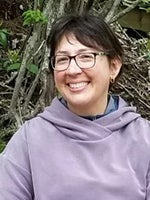
Spring 2024 Seminar Series
Department of Anatomy and Cell Biology
Brody School of Medicine
5 April 2024 1:00-2:00 pm
LSB room 202
Dr. Anne Spuches
Professor Department of Chemistry East Carolina University®
The heat is on: Investigating the thermodynamics that drive the binding of toxic cadmium ions to human cardiac troponin C
Dr. Anne Spuches, PhD is a Professor in the Department of Chemistry at East Carolina University. Dr. Spuches earned her PhD in Chemistry from Yale University and conducted her postdoctoral training at Dartmouth College. Research in Dr. Spuches’ lab focuses on how metals (both toxic and essential) are “trafficked” within the cell. Metals play many important roles in biochemistry and all organisms require metal ions to carry out very specific functions. However, many of the essential metals such as copper and iron are redox active and unless tightly regulated are highly toxic. The goal of her lab is to understand how metals are regulated within the intra-cellular milieu. To achieve this understanding, her lab uses thermodynamic and spectroscopic techniques to characterize the thermodynamics and kinetics of metals binding to various biological molecules such as proteins and enzymes.
Individuals requesting accommodation under the Americans with Disabilities Act (ADA) should contact the Department for Disability Support Services at least 48 hours prior to the event at 252-737-1018 (voice/TTY).

Fall 2023 Seminar Series
Department of Anatomy and Cell Biology
Brody School of Medicine
8 December 2023 1:00-2:00 pm
Brody 2E-100
Dr. Lauren Anllo
Assistant Professor Department of Biology East Carolina University®
Visceral muscle cues influence gene expression to assemble the testis niche
Dr. Lauren Anllo, PhD is an Assistant Professor in the Department of Biology at East Carolina University. She earned her PhD in molecular biology at Princeton University and completed her postdoctoral training at the University of Pennsylvania. The Anllo Lab is working to understand the regulation of cell signaling, gene expression, and cell biological responses required to compartmentalize the stem cell niche, a cellular microenvironment that maintains stem cells and regulates their behavior. The lab leverages the fruit fly male gonad as a model system. This system enables us to employ powerful Drosophila genetics and in vivo live imaging coupled to incisive optogenetic approaches. The lab’s ultimate goal is to reveal the cellular dynamics and molecular mechanisms required to assemble a functional stem cell niche, contributing to the fields of stem cell biology and tissue formation.
Fall 2023 Seminar Series
Department of Anatomy and Cell Biology | Brody School of Medicine

Role of vitamin D in modulating the germline epigenome
Associate Professor
School of Medicine
University of North Carolina at Chapel Hill
Time: December 1, 2023 1:00-2:00 pm
Location: Brody 2E-100
Dr. Folami Ideraabdullah, PhD is an Associate Professor of Genetics in the School of Medicine at UNC Chapel Hill and holds a joint appointment in the Department of Nutrition in the Gillings School of Global Public Health. She earned her PhD in comparative mouse genetics at UNC Chapel Hill and completed postdoctoral training in epigenetic regulation of genomic imprinting at the University of Pennsylvania. The Ideraabdullah Lab studies mechanisms of environmental modulation of the epigenome during development. They examine the impact on progeny development and health across the lifespan as well as potential for transmission to subsequent generations. A key focus is to identify naturally occurring genetic differences that contribute to variability in these outcomes for the purpose of identifying and helping susceptible populations. Ongoing projects investigate the impact of vitamin D deficiency, pesticide exposure, and hyperglycemia during pregnancy.
Cholecystokinin receptor antagonist challenge elicits brain-wide functional connectome modulation with micronetwork hippocampal decreased calcium transients
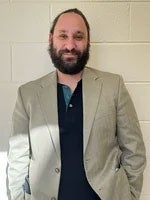
Speaker: Dr. Francis Manno
Assistant Professor
Department of Physics
East Carolina University®
Time: November 17, 2023 1:00-2:00 pm
Location: Brody 2E-100
Dr. Francis Manno, PhD is an Assistant Professor in the Department of Physics at East Carolina University. Dr. Manno earned his first PhD in Biomedical Neuroimaging from the Universidad Nacional Autónoma de México and a second PhD in Physics and Applied Materials Sciences from the University of Hong Kong. He completed his postdoctoral training at Johns Hopkins University supported by a T32 NIH Postdoctoral Fellowship. Dr. Manno is directing a multisite collaboration concerning the genetic alterations related to the cortical manifestations in hearing loss. His work at ECU will concentrate on MRI imaging defined phenotypes to reveal features in humans and in rodent models that can ameliorate disease. In the context of hearing loss, Dr. Manno will explore rodent models to develop structural probabilistic maps using machine learning and genetics, which can be used for assessing the impact to the brain throughout the lifespan. His research will also attempt to use rodent models of Alzheimer’s disease to discern the influence of hearing loss progression contributing to the neuropathology in dementia.
Challenging the archetype: Exploration of a protein-protein interaction controlling Vibrio fischeri biofilm formation

Speaker: Dr. Morgan Milton
Assistant Professor
Department of Biochemistry and Molecular Biology
East Carolina University®
Time: November 10, 2023 1:00-2:00 pm
Location: Brody 2E-100
Dr. Morgan Milton, PhD is an Assistant Professor in the Department of Biochemistry and Molecular Biology at East Carolina University. Dr. Milton earned her PhD in Biochemistry from Iowa State University and conducted her postdoctoral training at North Carolina State University, RTI International and East Carolina University. The Milton lab uses a variety of biochemical, biophysical, and microbiology techniques to study the structures and function of proteins. These include X-ray crystallography, computational modeling, mass spectrometry, protein-protein and protein-nucleic acid assays, protein purification, and biofilm formation analysis. Among the current research interests of the lab there are the study of the mechanisms governing bacterial biofilm formation, signaling networks connecting quorum sensing and biofilm formation, and antibiotic tolerance and resistance.
Understanding how to Build Bridges: Insights from Zebrafish
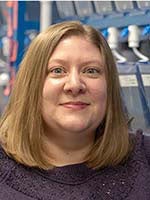
Speaker: Dr. Karen Mruk
Assistant Professor
Department of Pharmacology & Toxicology
East Carolina University®
Time: October 20, 2023 1:00-2:00 pm
Location: Brody 2E-100
Dr. Karen Mruk, PhD is an Assistant Professor in the Department of Pharmacology & Toxicology at East Carolina University. Dr. Mruk earned her PhD in Biochemistry and Molecular Pharmacology from the University of Massachusetts and conducted her postdoctoral training at Stanford University. The Mruk lab studies CNS injuries using the zebrafish model because the zebrafish CNS shares many organizational, cellular and molecular pathways with mammals. Despite these similarities, zebrafish are able to recover their movement after injury. She uses a combination of electrophysiology, fluorescent imaging, behavior, and bioinformatics to understand how the entire CNS network responds and subsequently recovers from injury.
Understanding How Proline Hydroxylation Impacts Heart Disease Susceptibility

Speaker: Dr. Leslie Kennedy
Assistant Professor
Department of Physiology
East Carolina University®
Time: October 6, 2023 1:00-2:00 pm
Location: Brody 2E-100
Dr. Leslie Kennedy, PhD is an Assistant Professor in the Department of Physiology at East Carolina University. Dr. Kennedy earned her B.S. in Biology with honors from Elizabeth City State University, where she was awarded the Chancellor’s Distinguished Emblem Award and the Honors Program Merit Award. She then earned her Ph.D. in Biology from the University of North Carolina at Chapel Hill in 2017 just prior to coming to the NHLBI in 2017 as a postdoctoral fellow working in the laboratory of Elizabeth Murphy, Ph.D. Dr. Kennedy’s work focuses on investigating the molecular underpinnings of cardiovascular pathologies, such as heart failure and hypertrophic cardiomyopathy.
Human Pluripotent Stem Cell-Based Organoid Models for Developmental Cardio/Neural Toxicity Testing and Disease Modeling

Speaker: Dr. Xian Wu
Assistant Professor
Department of Pharmacology & Toxicology
East Carolina University®
Time: September 29, 2023 1:00-2:00 pm
Location: Brody 2E-100
Dr. Xian Wu, PhD is an Assistant Professor in the Department of Pharmacology & Toxicology at East Carolina University. His research primarily centers around employing human stem cell (ESC/iPSC) in vitro models to simulate disease conditions in both cardiovascular and neural systems, with a specific focus on developmental toxicology and human health. To achieve this, he utilizes a fluorescence reporter cell system and organoid models, aiming to elucidate the critical periods of vulnerability during early human development when exposed to environmental contaminants. At a mechanistic level, the emphasis of his research lies in investigating epigenetic alterations and conducting pathway analyses via RNA-seq to understand the effects of chemicals.
Rethinking Sperm Energy Metabolism—How The Nutrient Microenvironment ‘Signals’ Capacitation

Speaker: Dr. Cameron Schmidt
Assistant Professor Department of Biology
East Carolina University®
Time: September 22, 2023 1:00-2:00 pm
Location: Brody 2E-100
Dr. Cameron Schmidt, PhD is an Assistant Professor in the Department of Biology at East Carolina University. His lab is broadly interested in understanding how interactions between the physical microenvironment and metabolism inform the emergent properties of cells and tissues. His primary focus is on the integrative cellular bioenergetics that facilitate animal fertility and reproduction. More specifically, he is investigating how the reproductive microenvironment influences the function and fitness of gametes (sperm and eggs) during fertilization. His lab loves working with live cells, fluorescent molecules, computers, and mathematical/statistical thinking.
Mechanism and therapies for white matter diseases
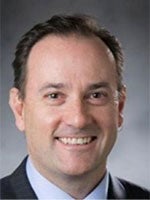
Speaker: Simon Gregory, PhD
Professor Department of Neurosurgery Duke University
Time: Fri May 26, 2023, 1:00pm – 2:00pm
Research interests
Dr. Gregory applies his experience gained from leading the sequencing of chromosome 1 for the Human Genome Project to elucidating the mechanisms underlying multi-factorial diseases using genetic, genomic, and epigenetic approaches. Dr. Gregory’s primary areas of research involve understanding the molecular processes associated with disease development and progression in brain tumors and Alzheimer’s disease, novel drug induced white matter injury repair in multiple sclerosis, and social and behavioral response to oxytocin treatment animal models of autism. He is broadly regarded across Duke University as a leader in the development of novel single cell and spatial molecular technologies towards understanding the pathogenic mechanisms of disease development.
Sex-dependent effects of Toll-like receptor-4 regulation on cognitive function

Speaker: Rachel Kohman, PhD
Associate Professor Department of Psychology
University of North Carolina Wilmington
Time: Fri May 19, 2023, 1:00pm – 2:00pm
Location: Brody 2E-100
Research interests
The long-term goal of Dr. Kohman’s research program is to determine the functional consequences of inflammation within the brain (i.e., neuroinflammation) as well as uncover the physiological mechanisms through which neuroinflammation disrupts cognitive function and measures of neural plasticity. A large focus of Dr. Kohman’s work is in understanding how factors such as age, sex, and exercise influence the response to an immune challenge and subsequent effects on cognitive function. Currently, her lab is evaluating the contribution of age-related increases in neuroinflammation to cognitive decline and reductions in hippocampal neurogenesis and whether increasing physical activity can attenuate neuroinflammation. Additionally, her lab is investigating the neural mechanisms through which immune activation disrupts learning and memory. To address these and other questions Dr. Kohman’s lab employs a variety of behavioral tests and biological techniques such as immunohistochemistry, real-time RT-PCR, ELISA, and confocal microscopy. The objective of her research is to gain a better understanding of the interactions between the brain and the immune system, identify the factors that initiate and sustain the development of low-grade chronic neuroinflammation in the aged, and facilitate development of novel therapeutic interventions.
The autism-associated loss of δ-catenin functions disrupts social behavior
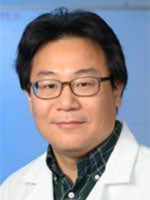
Speaker: Seonil Kim, PhD
Assistant Professor
Department of Biological Sciences
Colorado State University
Time: Fri Feb 17, 2023, 1:00pm – 2:00pm
Location: Brody 2E-100
Research interests
Our lab researches synapse biology and neuron function and how synapse contributes to cognition in brain disorders. We study the changes in synapse structure and function in neurons. We focus on the signaling pathways and receptor trafficking mechanisms that control synaptic transmission and synapse strength. Many of our studies are conducted in cultured neurons, a highly versatile system for analyzing synapse function. We also employ genetically modified mice to study cognitive function and diseases. We extensively employ techniques of cell biology, Calcium imaging, biochemistry, and behavioral analysis, as well as electrophysiology to deduce molecular mechanisms that control synapses.
Cellular control of cranial neural tube closure
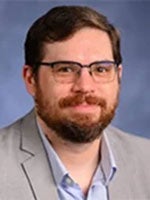
Speaker: Eric Brooks, PhD
Assistant Professor
Department of Molecular Biomedical Sciences
North Carolina State University
Time: Fri April 21, 2023, 1:00pm – 2:00pm
Location: Brody 2E-100
Research interests
Several critical tissue reshaping events occur in the early embryo as the basic body plan of the animal is laid out. One of these is neural tube closure.
During this process a sheet of neuroepithelial cells undergoes a dramatic conformational change to form the neural tube, a closed and hollow structure that forms the structural basis of the brain and spinal cord. We are particularly interested in closure of the future brain, where the neuroepithelial sheet undergoes a dramatic curvature inversion. We use a combination of mouse genetics, quantitative live and fixed imaging, molecular and cellular approaches to explore how neuroepithelial cells contribute to this large-scale tissue remodeling at the individual and ensemble levels.